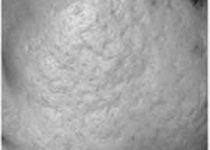My Quest For Clear Skin: A Journey Through Acne Treatments
Acne. Just the word itself can bring back a rush of teenage angst and insecurity. For years, I battled breakouts, trying everything from harsh cleansers to toothpaste (don't ask!). My skin was a constant source of frustration, impacting my self-esteem and making me dread looking in the mirror. It felt like a never-ending cycle of trying new products and being disappointed. Finally, after years of trial and error, I found a routine that worked for me. This post is a culmination of my experiences and research, a guide to navigating the sometimes confusing world of acne treatments.
Acne is a common skin condition that occurs when hair follicles become clogged with oil and dead skin cells. This can lead to whiteheads, blackheads, pimples, and even cysts. There are a variety of factors that can contribute to acne, including genetics, hormones, diet, and stress. Understanding the root cause of your acne can be helpful in determining the best course of treatment.
One of the first steps in treating acne is establishing a good skincare routine. This typically involves cleansing the skin twice daily with a gentle cleanser, avoiding harsh scrubbing, and using a non-comedogenic moisturizer. Non-comedogenic products are formulated to not clog pores, which is crucial for preventing further breakouts.
Over-the-counter treatments can be effective for mild to moderate acne. Look for products containing ingredients like benzoyl peroxide, salicylic acid, or retinoids. Benzoyl peroxide kills acne-causing bacteria, while salicylic acid helps to exfoliate the skin and unclog pores. Retinoids, derived from vitamin A, increase cell turnover and prevent clogged pores.
For more severe acne, a dermatologist can prescribe stronger medications. These may include topical antibiotics, oral antibiotics, or even isotretinoin (commonly known as Accutane). It's important to follow your dermatologist's instructions carefully and be aware of potential side effects.
Lifestyle changes can also play a significant role in managing acne. Eating a healthy diet, managing stress levels, and getting enough sleep can all contribute to clearer skin. While there's no magic bullet, making these changes can support your overall skin health.
Remember, finding the right acne treatment can take time and patience. What works for one person may not work for another. Don't be discouraged if you don't see results immediately. Keep track of what you're using and how your skin responds, and don't hesitate to consult a dermatologist if you're struggling.
Finally, be kind to yourself. Acne is a common condition, and it doesn't define you. Focus on finding a treatment plan that works for you and remember that clear skin is a journey, not a destination.


